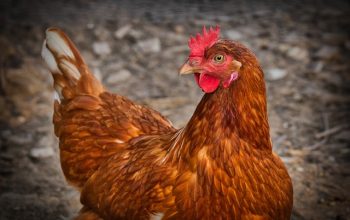Electric fencing is a modern, innovative solution for farm management, offering significant advantages over conventional methods. Using electrical impulses, it precisely controls livestock without requiring unsightly physical barriers. Ideal for optimizing land use, electric fences allow farmers to create flexible grazing areas and implement intricate layouts for tailored livestock strategies, promoting herd health and enhancing farm operations. This humane method, featuring insulator posts and high-tension wires, is customizable in voltage and wire placement, making it a cost-effective, low-maintenance option that aligns with modern farming practices focused on animal welfare.
Electric fencing is transforming the agricultural landscape, offering farmers a modern, efficient solution for managing livestock. This innovative approach to fencing provides numerous benefits, from enhanced animal containment to reduced environmental impact and cost savings.
This comprehensive guide explores the advantages of electric fencing for farms, covers installation steps, and provides best practices for maintenance. Discover how this technology can revolutionize your farming operations.
- Understanding Electric Fencing for Farms: A Modern Approach
- – Definition and basic operation of electric fencing
- – Advantages over traditional fencing methods
- Benefits of Implementing Electric Fencing on Your Farm
Understanding Electric Fencing for Farms: A Modern Approach
Electric fencing has emerged as a modern and innovative approach to farm management, offering numerous benefits over traditional methods. This advanced technology is designed to control and manage livestock with precision and efficiency, making it an ideal solution for today’s farming practices. By utilizing electrical impulses, these fences provide a safe and effective way to guide animals without the need for physical barriers that can be unsightly or obstructive.
For farms looking to optimize their land use, electric fencing allows for flexible and customizable configurations. It enables farmers to create dedicated grazing areas, control animal movement between fields, and even set up intricate layouts for specific livestock management strategies. This technology ensures animals stay within designated boundaries, promoting better herd health and facilitating efficient farm operations.
– Definition and basic operation of electric fencing
Electric fencing, a modern solution for farm management, utilizes electric current to create a barrier that deters animals from entering restricted areas. It operates by delivering a harmless but palpable shock to animals when they touch or attempt to cross the fence. This simple yet effective method has become increasingly popular in farming due to its versatility and reliability.
Farmers can customize electric fencing to suit their specific needs, adjusting the voltage and wire placement for optimal animal control. Typically, these fences consist of a series of insulator posts supporting high-tension wires. When an animal comes into contact with the wire, a small current flows through its body, providing a brief but strong stimulus that teaches the animal to avoid the area. This humane approach ensures the well-being of livestock while offering a practical solution for protecting crops and grazing lands from unwanted visitors.
– Advantages over traditional fencing methods
Electric fencing offers numerous advantages over traditional fencing methods for farms, making it a popular choice among modern farmers. One of its key benefits is flexibility and customization. Unlike solid barriers, electric fences can be tailored to the specific needs of different livestock, allowing for more precise control and management. This adaptability ensures animals stay within designated areas without restricting their natural behavior, promoting healthier and happier herds.
Additionally, electric fencing systems are cost-effective in the long run due to their durability and low maintenance requirements. These fences can withstand harsh weather conditions and typically require minimal repair or replacement parts. They also significantly reduce labor costs as they eliminate the need for extensive physical installation and ongoing upkeep compared to traditional fences.
Benefits of Implementing Electric Fencing on Your Farm
Implementing electric fencing on your farm offers numerous benefits, transforming how you manage livestock and maintain territorial control. Firstly, it provides a humane alternative to traditional, solid fences, as electric fences deliver precise, low-impact shocks that deter animals without causing harm. This approach aligns with modern farming practices focused on animal welfare.
Secondly, electric fencing allows for greater flexibility in layout and design compared to conventional fencing. It enables farmers to create intricate patterns and define specific areas for grazing, allowing for more efficient land use and improved livestock management strategies. This versatility makes it an attractive option for farms with diverse landscapes and unique requirements, contributing to enhanced overall farm efficiency.
Electric fencing offers a modern, efficient solution for farm management, providing numerous benefits over conventional methods. By implementing this technology, farmers can enhance their livestock control, improve animal safety, and reduce maintenance costs in the long run. The environmental impact is also minimized with electric fencing, making it an eco-friendly choice. Upgrading to electric fencing for farms is a smart investment that can revolutionize how you manage your land, ensuring a more efficient, effective, and sustainable future.




